- Home
- Keith Douglass
Enemies c-15 Page 18
Enemies c-15 Read online
Page 18
“Yeah, felt solid to me,” Thor said. They’d have to wait for the BDA but he was willing to stake some mighty stiff drinks on being dead on target.
“Cut the chatter,” Tomcat Lead ordered, his voice harsh. “We got some problems.”
“You hit?” Thor asked. He hadn’t seen any antiair installations except the two the HARMS had taken out, but that didn’t mean there hadn’t been any. Still, Lead could have called out a warning as soon as he’d—
“No, not that. Button two,” Lead ordered.
Thor clicked over to the private circuit in use only between the American aircraft. It was encrypted, ensuring that anyone scanning the frequencies couldn’t pick up their conversation. “What gives?” he asked.
“Looks like we got a problem with the Greeks,” Lead said. “Look at their disposition. Doesn’t look to me like they’re wanting to tank and head home.”
Thor glanced down at his fuel indicator. Not critical yet, but lower than he liked. He swore silently at himself for pulling the hot dog maneuvers with the steep angle of ascent as they’d left the airfield.
“They’re high-low,” Lead continued. “And they’re not RTB as briefed. They’re sitting there in a fighter sponge like they’re waiting for someone. One guess as to who that might be.”
“What the hell are they doing?” Thor asked. “Surely they’re not—” The hard warble of his ESM gear cut him off, the tone indicating that it had detected radar guidance signals from an air-to-air missile.
SIXTEEN
Thursday, 11 May
Greek Tomcat 103
1042 local (GMT –2)
Greek Army Captain Simeon twisted in his cockpit, unable to hold still under the force of the clear, burning rage coursing through his body. He’d known Helios since their earliest days in the Air Force, had gone through all phases up to and including advanced combat fighter tactics together. They’d fought together, drank together, and chased women for the better part of seven years.
All that ended now, Helios’s life snuffed out in the most cowardly attack that he’d ever witnessed.
Not that he’d actually seen it. Helios had been at the tail end of the Greek wave of aircraft. Just as the base had made the first report of the American’s treachery, there’d been a brief, confused sputter from his own ESM gear. His backseater had been howling and he’d slammed his own aircraft up into as steep a climb as he could coax out of the Tomcat. Altitude meant room to maneuver, and while diving for the deck might be an acceptable counter-missile technique, no pilot he knew ever wanted to start an engagement so short on elbow room.
Now, with the rest of his aircraft sorting themselves out, their orbit intervals and altitude separation gradually obtaining some semblance of order, Simeon had a few moments to think.
“You saw it?” he asked his backseater over the ICS.
“I think so. Something that looked like a missile anyway. But General Arkady, he said it came from the American ship. The bearing was all wrong — it was coming from further inland, not from the sea. Besides, if it had been from the ship, I would have seen it for much longer time.”
“Inland? You’re certain?”
“Yes. But the detection was so short”—Simeon could hear the mental shrug—“I could be wrong. I probably am. If the generals says…”
If the general says it came from the sea, then it did. Neither of us would survive reporting data that contradicts his orders. Simeon knew that was exactly what his backseater was thinking.
“A malfunction in your radar,” he announced.
“Yes, of course,” the backseater said quietly. “But Simeon, these orders… do we truly want to attack the Americans now? After they’ve just flown a mission with us?”
More than anything in the world, Simeon did not. Yet caught between the Americans behind him and General Arkady ahead of him, there simply was no choice. Better to die here than to face what would greet him on the ground if he returned without following the general’s orders.
Or trying to obey them, at least. Simeon had no great illusions about the damage he could do to the men and women in the aircraft behind him. Americans had built the Tomcat, knew its power and capabilities better than any other nation on earth. Their aircraft would be just as potent — even more so, since there were certain capabilities built into the American aircraft that were not available on the export models. The Greeks had tried to make up for that by cobbling together some systems they’d bought from Russia, but the results had been far from satisfactory and had resulted in intermittent errors just like the one he’d concocted to explain his backseater’s missile detection.
Simeon heard silence on the tactical circuit as the rest of the men orbited and waited for him to decide what to do.
As though he had a choice. He took a deep breath and toggled the microphone on. “You heard the general’s orders. Maintain separation and avoid interfering with each other’s shots. Weapons free on all American targets.”
Someone snorted and did not identify themselves, although Simeon thought he could identify the person. “Weapons free. Which weapons would that be exactly, Lead?” They’d left the airfield with a minimal antiair loadout, configured as Bombcats for this particular mission. Each aircraft carried one Sidewinder and one Sparrow, along with a full magazine of rounds for the gun.
The general hadn’t thought of everything, now had he?
At least the American Tomcats were in no better shape. And at least they knew what sort of fight to expect. Except for the Hornets… now there was a nasty little addition to the problem. The Tomcat airframes were heavy and powerful, and they’d be forced by wing loading considerations to fight the same fight. The lighter, more maneuverable Hornets were a different problem altogether.
“We use what we’ve got,” Simeon announced. “Call your target.”
USS Jefferson
TFCC
1045 local (GM –2)
From the intelligence compartment next to TFCC, Lab Rat watched the Greek fighters peel out of their strikes waves. Before they’d even formed up into fighting teams, he tapped the TAO on the shoulder. “Call Admiral Wayne. Tell him it’s urgent.”
Tavista Air Base
Command Center
1050 local (GM –2)
Tombstone Magruder was flanked by six guards as he entered the command post. The look on his face would have caused most officers to break out into a cold sweat and start planning their civilian careers. Yet General Arkady merely waved a congenial greeting and beckoned him over to stand before the radar screen.
“What is the meaning of this?” Tombstone demanded, his voice even colder than the expression on his face.
Arkady glanced up, then surveyed the guards as though slightly surprised to see them there. “I wanted you to see this. Under the circumstances, I thought you might need some persuasion.”
“Persuasion? You mean like placing the rest of my officers and troops in custody and assigning guards to keep them in one room? You’ve got the wrong idea about how allies behave toward one another, General.” Tombstone stalked into the room as though it were his own squadron spaces. “Unless my people are released within the next ninety seconds, I’m withdrawing all American forces from participation in UNFORGREECE. And just in case you think I don’t have the power to do that, you just try considering exactly who those men and women will obey if it comes right down to it.”
“Which is exactly why I’ve put them all together for safekeeping,” Arkady said, his pleasant expression broadening into a smile. “Yes, I understand your American forces far better than you think I do.”
“You understand nothing,” Tombstone spat. “Nothing at all. Not about fighting this war, not about the UN, much less about any of us.”
Arkady’s face froze for a moment, then the smile faded into an expression far more menacing. “Don’t make the mistake of underestimating me.”
“Like you’ve done us?”
Arkady shook his head, the menace fading away as
he did so. “Look at your disposition of forces first. Then tell me I don’t understand your people.”
Tombstone could see the tactical picture as clearly as though he’d charted it out himself. The American aircraft, both Tomcats and Hornets by their symbology numbers, were arrayed in an orderly formation leaving the area of their last strike. Ahead of them, a disorderly gaggle of Greek aircraft were breaking away from a fighter sponge and forming up into pairs of twos, one taking high station and the other taking low. The loose-deuce fighting formation, a two-on-one combo that rarely failed to give the Americans a distinct advantage over other nations more accustomed to fighting under the direction of a ground controller.
“Why?” Tombstone asked finally as he watched the two waves of aircraft approach each other. Two even lines, sets of twos — at least the lead American pilot had gotten the idea and was reconfiguring his forces into fighting pairs. “Why any of this?” The six guards crowded in closer to him as his fingers curled into fists.
“Because this is an internal problem.” Arkady paused for a moment to let Tombstone consider his words. “As we’ve said from the very beginning, there is no place for the rest of the world in resolving this matter. But you Americans have become accustomed to simply barging in anywhere in the world that your misguided sense of knighthood seems to tell you that your presence is needed.” Arkady’s calm facade was cracking now, revealing the insanity underneath it. “My people were making sophisticated battle plans, inventing the very sciences that you use today when your ancestors were still worshipping trees. We don’t need the world to solve our problem for us any more than we needed the friendship of the Romans all those centuries ago.”
The Greek general turned to stare at the screen again, and watched with satisfaction as the two waves of aircraft merged into a fur ball. “And now we’ll teach the world one more lesson — to stay out of our country.”
Devil Dog 202
1051 local (GMT –2)
Thor put the Hornet in as steep a climb as he could manage without going into afterburner. Even before the engagement began, fuel was already his limiting factor. A bad thing anytime, but particularly so when your opponent was a Greek Tomcat carrying more pounds of fuel after a bombing run than you could at max load.
The thin whine of the ESM gear filled the cockpit. A lock. Thor glanced at his HUD. A Sidewinder probably — the IR guided antiair missile was the weapon of choice with the Hornet’s tail pointed almost directly at the oncoming Tomcat.
Why had the Tomcat picked him? The question beat in the back of his head as he flew upward, gauging the exact moment when he’d have to take evasive action.
“I’m on him, Thor,” his wingman said. Cassidy “Hopalong” Kramer, a nugget still less than one year out of the Fleet Replacement squadron but one of the best natural pilots Thor had ever run across. “Break right when I say.”
One the HUD, Thor could see Cassidy’s Hornet streaking in from above, diving and pivoting in midair to cut back in behind the Greek Tomcat in perfect killing position. It had better be quick — Thor could feel his airspeed bleeding off, the knots clicking down as the altitude crept up. The hair on the back of his neck started to prickle, and his hand reached for the throttle. Low fuel or not, in a few seconds he was going to need that extra power to keep him out of the stall envelope.
The ESM warning shifted upward in tone, indicated a solid lock. Then it broke into an excited chatter. Thor reached for the controls — missile launch — no way he was waiting, he had to get the hell out of Dodge now.
“Now!” Hopalong sang out as though echoing his thoughts and Thor broke hard right.
“Where’s the missile?” Thor demanded as he let gravity take hold, bolstering his airspeed and preparing for evasive action. “Where is it, dammit?” He tapped the afterburners, accelerating the Hornet well into a comfortable flying attitude.
“Fireball caught it,” Hopalong crowed. “Got that bastard on guns! Man, splash one Tomcat!”
“Where’s his wingman?”
“He’s just… wait, he’s… shit, Thor, he’s on me! Cut back around me and nail him. I’m going rolling scissors.” Hopalong spun his Hornet onto his back and went into a hard, spiraling horizontal roll. The wingman started to follow, then evidently recognized the trap. If the Hornet could trap the less-maneuverable bird into a horizontal game, the Hornet won. Sooner or later, Cassidy would have cut inside the Tomcat’s turning radius and either stitched a line down its side with gunfire, hoping to hit a fuel tank, or pickled off a heat-seeking missile locked hard on the Tomcat’s tailpipe.
But this Tomcat pilot wasn’t that stupid. He exploited the Tomcat’s greater thrust to wing ratio and grabbed for altitude, clearly intended to pace the Hornet from above and force the game into the vertical.
Thor pulled up his own dive for the deck when his airspeed was well within the envelope again. He still had five thousand feet on the climbing Tomcat, but the range… could he make it in time to slip in behind him? He considered it for just a second, then slammed into afterburner and closed the horizontal distance between them.
The Tomcat pilot caught on just as his vertical ascent passed through the horizontal plane of Thor’s airspace. The massive fighter twisted in midair, fighting against inertia and gravity to slew the glaring tailpipes away from Thor and to bring the Vulcan Phalynx cannon mounted under the left wing root to bear on the smaller aircraft.
But the Greek pilot was fighting more than two pissed off Hornet pilots — he was up against the laws of momentum and mass, and he didn’t stand a chance. Thor saw it before the Greek did and waited as the Tomcat started pulling out of the vertical climb and turning to face Thor.
Just as the clear canopy of the other fighter swung into view, but before the Tomcat could bring its own guns to bear, Thor toggled off a short burst from his gun. So maybe he couldn’t shoot the Macedonians on either side of Murphy when he’d wanted to, not that time, but guns and rounds were something that every Marine aviator schooled in the tenets of close air support understood very, very well.
The rounds, every tenth one a tracer, spat out across the front of the Tomcat. The canopy shattered, large chunks of plastic and metal supports streaming back from the cockpit along with a fog as the cockpit depressurized. Thor continued the stream of gunfire to the right, taking a few precious microseconds to do it, then slammed into afterburner while simultaneously turning hard to the left. His last few rounds caught the engine intake and the right engine exploded into flames.
Get out! You’ve got time! Against all sense, Thor screamed at the doomed aviator in the crippled plane, shouting at him to eject before the flames raced up the fuel lines and detonated the rest of the fuel.
The pilot in the cockpit was motionless. As Thor flashed by, he caught a glimpse of the shattered helmet, the spreading redness coating the inside of the cockpit.
Just as he cleared the other aircraft, it erupted into flames. The force of the explosion buffeted him as he swept by, tilting the tail of his Hornet up slightly.
“Two of them,” Hopalong shouted, victory plain in his voice. “Ain’t nothing can mess with a Marine Hornet, nothing. Specially not no Tomcat.”
Despite the jubilation in his wingman’s voice and the sheer relief of being free of the fighter on his tail, Thor felt a creepy sensation. Splash a Tomcat — not something he’d ever thought he’d hear a Hornet pilot say. Tomcats were American aircraft, or owned by America’s allies across the world. You fought side-by-side with them, not against them.
“Where’s everybody else?” Thor asked, scanning his own HUD and answering the question even as he asked it.
“To the west,” Hopalong answered. “Hot Rocks and Lobo are taking on the one that’s left in their pair, and the rest of them are out of action.”
“Maybe. So where the hell did they go?” Thor asked. He looked down at the fuel gauge and groaned. The two short spurts on afterburner had been critically necessary, but he’d expended over half of his rem
aining fuel. “And more importantly — where the hell are we going to go? For some reason, I find myself awful reluctant to head back to the airbase we just left.”
“Not to worry, Thor.” Lobo’s cool, sardonic voice came over the circuit just as the final enemy Tomcat burst into flames. “That’s the good thing about carrier aviation. You take your airfield with you. Jefferson’s putting gas in the air and they’ve got a green deck. Let’s go home, boys — now follow mama.”
“What about the rest of our people?” Thor asked. “We can’t just leave them back there.”
“We can and we will,” Lobo snapped. “What exactly did you plan to do, strafe the airfield then dive bomb on your empty fuel tanks?”
“Marines don’t leave Marines behind,” Thor countered.
“They do when there’s no other way. Now get your ass into formation and let’s plug and suck. We’ll pick up some reinforcments and be back. And this time, we’ll be ready for them.”
Thor clicked his mike twice in acknowledgment. Cassidy moaned softly and said, “Man, I love it when she talks dirty.”
Hill 802
1052 local (GMT –2)
By the time the air was crowded with aircraft overhead, Pamela had covered another one hundred yards. The wall of trees loomed up at her another forty feet away, dark and alluring as the waves of noise and destruction washed over her. The pain in her shoulder, the same one she’d injured before, was gnawing at her consciousness now, insisting that life would be so much easier if she’d just stop moving for a few moments — maybe a minute, no longer, just enough time to let it ease up some. A short rest, that’s what she needed. Very short. And then she’d go back to crawling on gouged and bloody hands and knees toward the forest so far away.
She’d just started to let herself sink down to the ground when two arms clamped down around her waist. They lifted her, taking the weight off her screaming shoulder, and just for a moment she thought she was flying through the air again, experiencing those pain-free moments she’d had before hitting the ground.

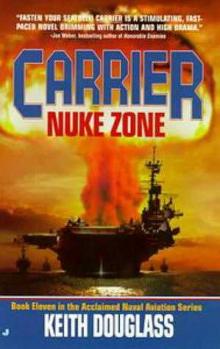 Nuke Zone c-11
Nuke Zone c-11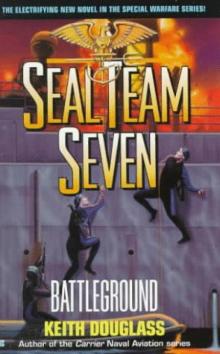 Seal Team Seven 6 - Battleground
Seal Team Seven 6 - Battleground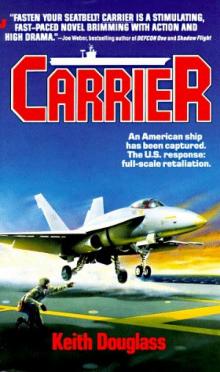 Carrier c-1
Carrier c-1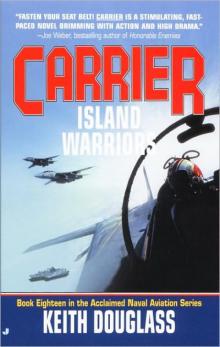 Island Warriors c-18
Island Warriors c-18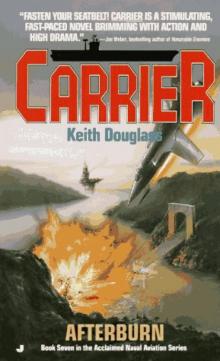 Afterburn c-7
Afterburn c-7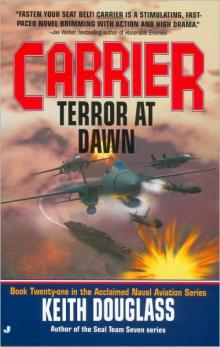 Terror At Dawn c-21
Terror At Dawn c-21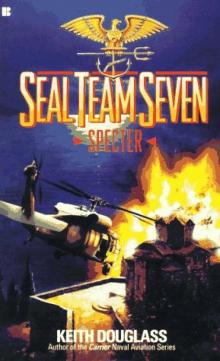 Specter sts-2
Specter sts-2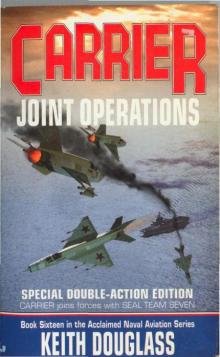 Joint Operations c-16
Joint Operations c-16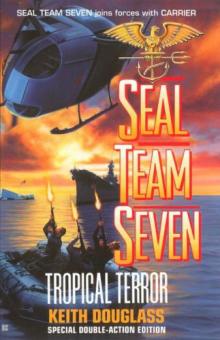 Tropical Terror sts-12
Tropical Terror sts-12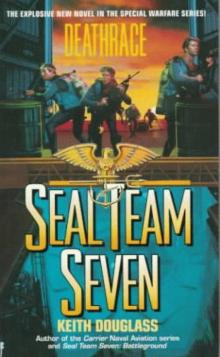 Seal Team Seven 7 - Deathrace
Seal Team Seven 7 - Deathrace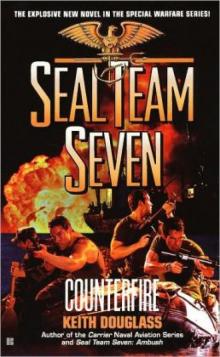 Counterfire sts-16
Counterfire sts-16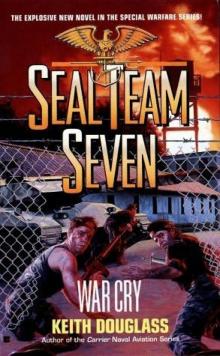 War Cry sts-9
War Cry sts-9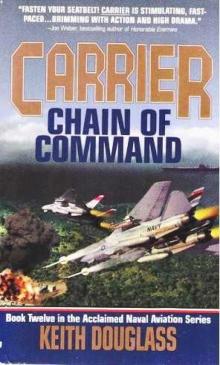 Chain of Command c-12
Chain of Command c-12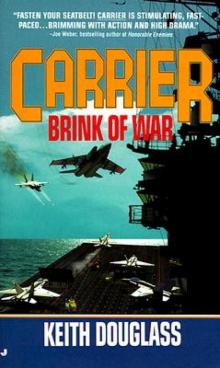 Brink of War c-13
Brink of War c-13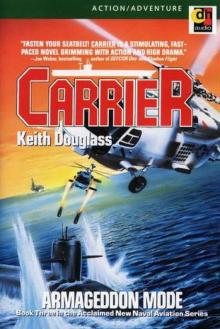 Armageddon Mode c-3
Armageddon Mode c-3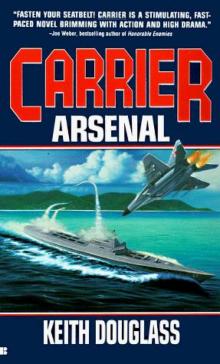 Arsenal c-10
Arsenal c-10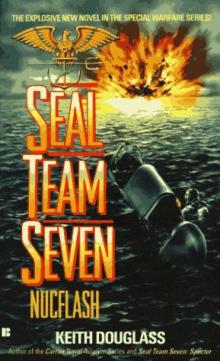 Nucflash sts-3
Nucflash sts-3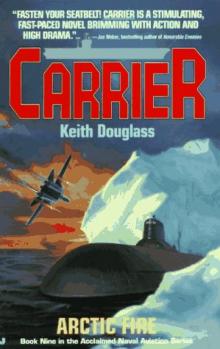 Arctic Fire c-9
Arctic Fire c-9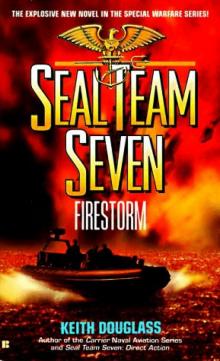 Firestorm sts-5
Firestorm sts-5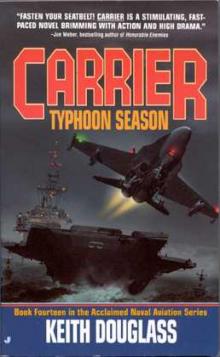 Typhoon Season c-14
Typhoon Season c-14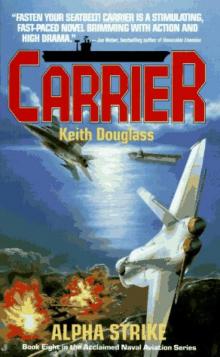 Alpha Strike c-8
Alpha Strike c-8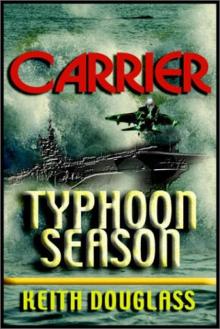 Carrier 14 - TYPHOON SEASON
Carrier 14 - TYPHOON SEASON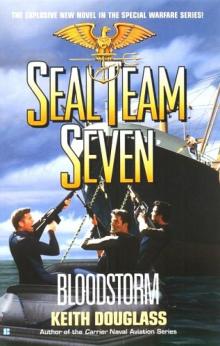 Bloodstorm sts-13
Bloodstorm sts-13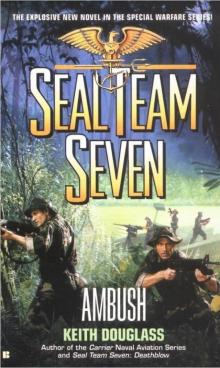 Ambush sts-15
Ambush sts-15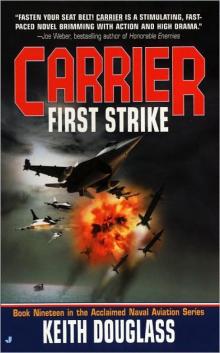 First Strike c-19
First Strike c-19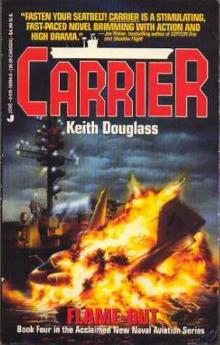 Flame Out c-4
Flame Out c-4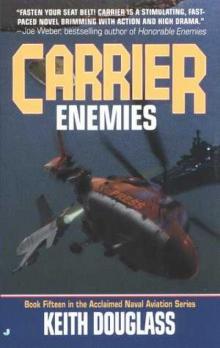 Enemies c-15
Enemies c-15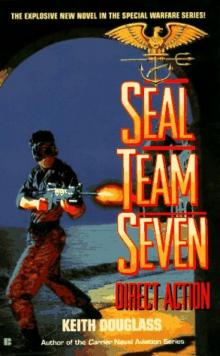 Seal Team Seven 04 - Direct Action
Seal Team Seven 04 - Direct Action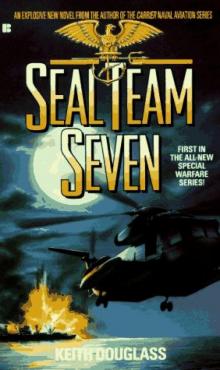 Seal Team Seven 01 - Seal Team Seven
Seal Team Seven 01 - Seal Team Seven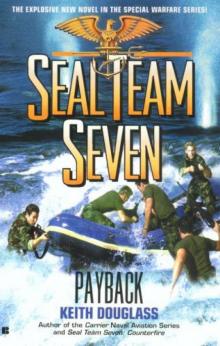 Payback sts-17
Payback sts-17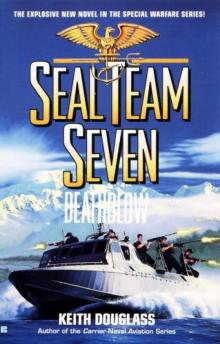 Death Blow sts-14
Death Blow sts-14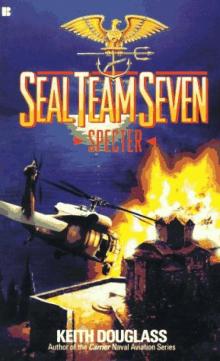 Seal Team Seven 02 - Spector
Seal Team Seven 02 - Spector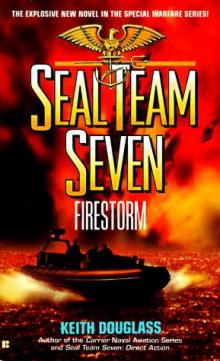 Seal Team Seven 5 - Firestorm
Seal Team Seven 5 - Firestorm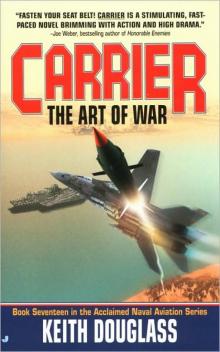 The Art of War c-17
The Art of War c-17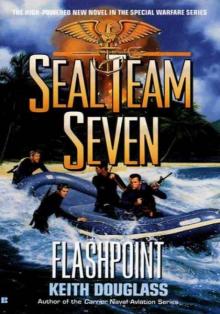 Flashpoint sts-11
Flashpoint sts-11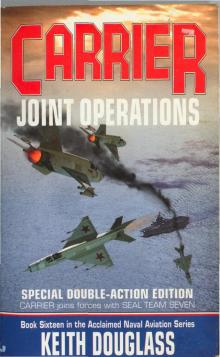 Carrier - Joint Operation Book 16
Carrier - Joint Operation Book 16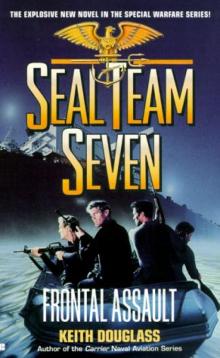 Frontal Assault sts-10
Frontal Assault sts-10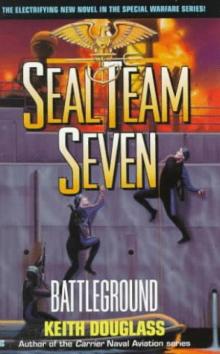 Battleground sts-6
Battleground sts-6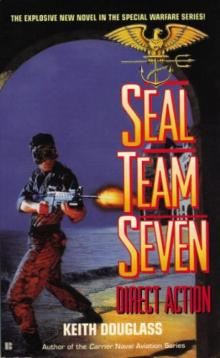 Direct Action sts-4
Direct Action sts-4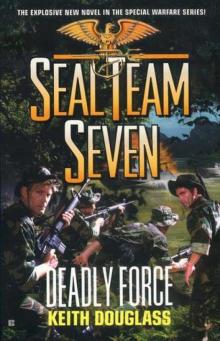 Deadly Force sts-18
Deadly Force sts-18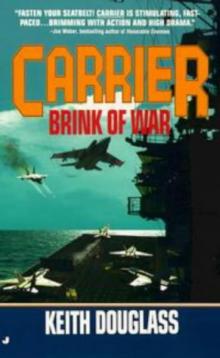 Carrier 13 - Brink of War
Carrier 13 - Brink of War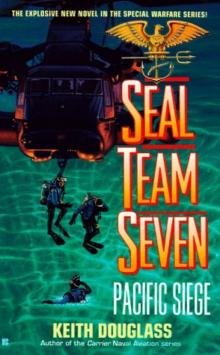 Pacific Siege sts-8
Pacific Siege sts-8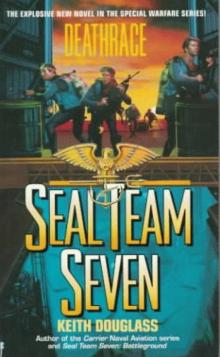 Deathrace sts-7
Deathrace sts-7